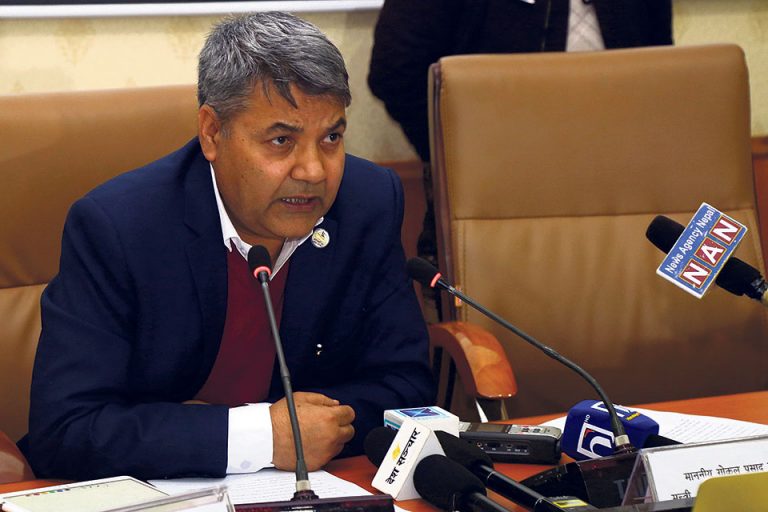
The government is all set to draft a new Land Bill, which will also incorporate the controversial Guthi bill that was later scrapped.
Briefing the media about the decisions made by the Council of Ministers yesterday, Minister for Communication and Information Technology, Gokul Baskota, informed that the Ministry of Land Management, Cooperatives and Poverty Alleviation has agreed in principle to draft the new bill.
“The new bill will incorporate all land-related bills as well as some provisions of the scrapped Guthi Bill with the objective to raise the scientific productivity of lands,” Baskota informed.
The new bill will be tabled at the parliament for endorsement after the concerned ministry completes drafting the bill and gets an approval from the cabinet.
Earlier this year, the NCP-led government drew flak for proposing the Guthi Bill with the intent to privatize all guthi lands. After a week of intense apolitical protests from Kathmandu locals and, the government on June 18 announced that it will withdraw the Guthi Bill from the Parliament.
The Guthi Bill, which was with the Upper House, proposed repressive provisions that would nationalize both private and public guthis, regulate all religious sites, and replace the Guthi Sansthan with a political commission.
After the bill was proposed, members of the Newar community in Kathmandu Valley resorted to street protests. The Newar community in the valley said the bill was designed to eliminate history by wiping out the institutional memory of various indigenous communities, and thus must be immediately dropped.
Unable to resist public pressure, the Ministry of Land Management, Cooperatives and Poverty Alleviation was forced to backtrack from the bill. Later, the ministry issued a statement stating that it had decided to withdraw the bill from the National Assembly for additional discussions with various stakeholders regarding the matter.
Guthis are socio-economic institutions that fund their obligations from incomes off of cultivated or leased land as assets. Guthis fulfill religious public services and social roles, and could either involve members from a common lineage, or several.





